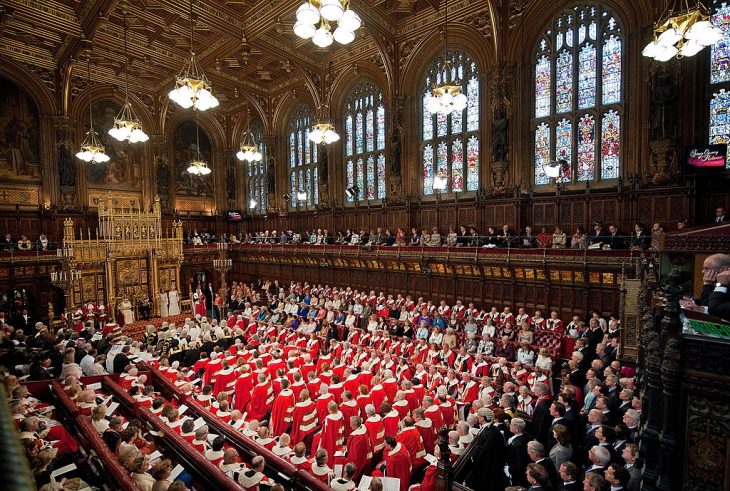Peers can continue their Brexit debate in relative peace today without the watchful glare of the Prime Minister gazing over them. Theresa May’s brief appearance at the start of the Lords’ Article 50 debate yesterday was unprecedented but given how long she stayed you’d be forgiven for thinking it was little more than a publicity stunt. For the Sun, however, the PM’s decision to swap chambers in Parliament did send out an important message. Those ‘unelected members still struggling with the concept of a democratic mandate’ should remember that the PM had ‘most of the public and a vast Commons majority behind her’ as she sat on the steps of the throne. The worry is, says the paper, that there are still enough peers ‘deranged by europhilia’ to try and hold up the process of Brexit. There are also the likes of Peter Mandelson to watch out for, says the Sun. Yesterday, the New Labour grandee said he backed ‘Remain’ out of patriotism. But the Sun says in fact, Mandelson is a ’bought-and-paid-for mouthpiece for Brussels’ and that ‘talking up the EU is a condition of his pension’. So today’s sideshow will continue in the Lords; but peers should remember the real debate ‘has been had’ and the final vote ‘cannot come soon enough’. ‘It’s time to let Theresa trigger Article 50,’ the Sun concludes.
When Theresa May does pull the Article 50 trigger, she’ll merely be starting off the long process of Brexit. So what will Britain end up with once it does finally leave the EU? There will be ‘costs in important parts of the economy’ says the Times. But there are key opportunities too – none more so than in the field of agriculture. The Times says Brexit can be the perfect chance to introduce ‘greater rationality’ here and that we can ditch the EU’s farm subsidies and quotas which have distorted prices by taking away ‘competitive pressures’. Given that ‘British farming is more efficient than the agricultural sectors of many EU member states’, these subsidies have also held back British farmers from ‘boosting productivity’ even further. But Brexit will bring an end to all this. It might be controversial, but the Times suggests it’s time to end the farm subsidies and follow in the footsteps of New Zealand, which after abolishing argricultural subsides saw productivity soar. ‘Britain can prosper outside the EU,’ says the Times. And ‘agriculture is where the reforms can start.’
Mystery surrounds the decision of Kraft Heinz to back out of its multi-billion pound bid for Unilever just days after tabling the offer. The Government has denied claims it put pressure on the US giant to back out of the deal. So what made Kraft change its mind? The true reason is unknown, says the FT. Perhaps the prospect of a ‘nasty takeover fight’ just didn’t seem appealing after all. Or even if the Government didn’t speak out over the merger, ‘political risk would have been on their minds regardless’ the FT points out. The paper says that Britain hasn’t forgotten Kraft going back on its pledge to keep its ‘Cadbury’s plant in Bristol open’ when it bought the chocolate giant back in 2010. But the FT says whatever the reasons for the bid being hastily ditched, ministers were right not to wade in. After all, down the road of government intervention lies ‘governments picking winners, crony capitalism, poor allocation of capital and stagnation,’ the paper argues. But companies, too, must do their share of soul searching: ‘the Brexit vote and the election of Donald Trump both indicate popular unhappiness with global capitalism’s hard edges,’ the FT says. Companies which fail to realise that the ‘rules are changing’ will end up being ‘made to suffer’, the FT says.






Comments
Comments will appear under your real name unless you enter a display name in your account area. Further information can be found in our terms of use.